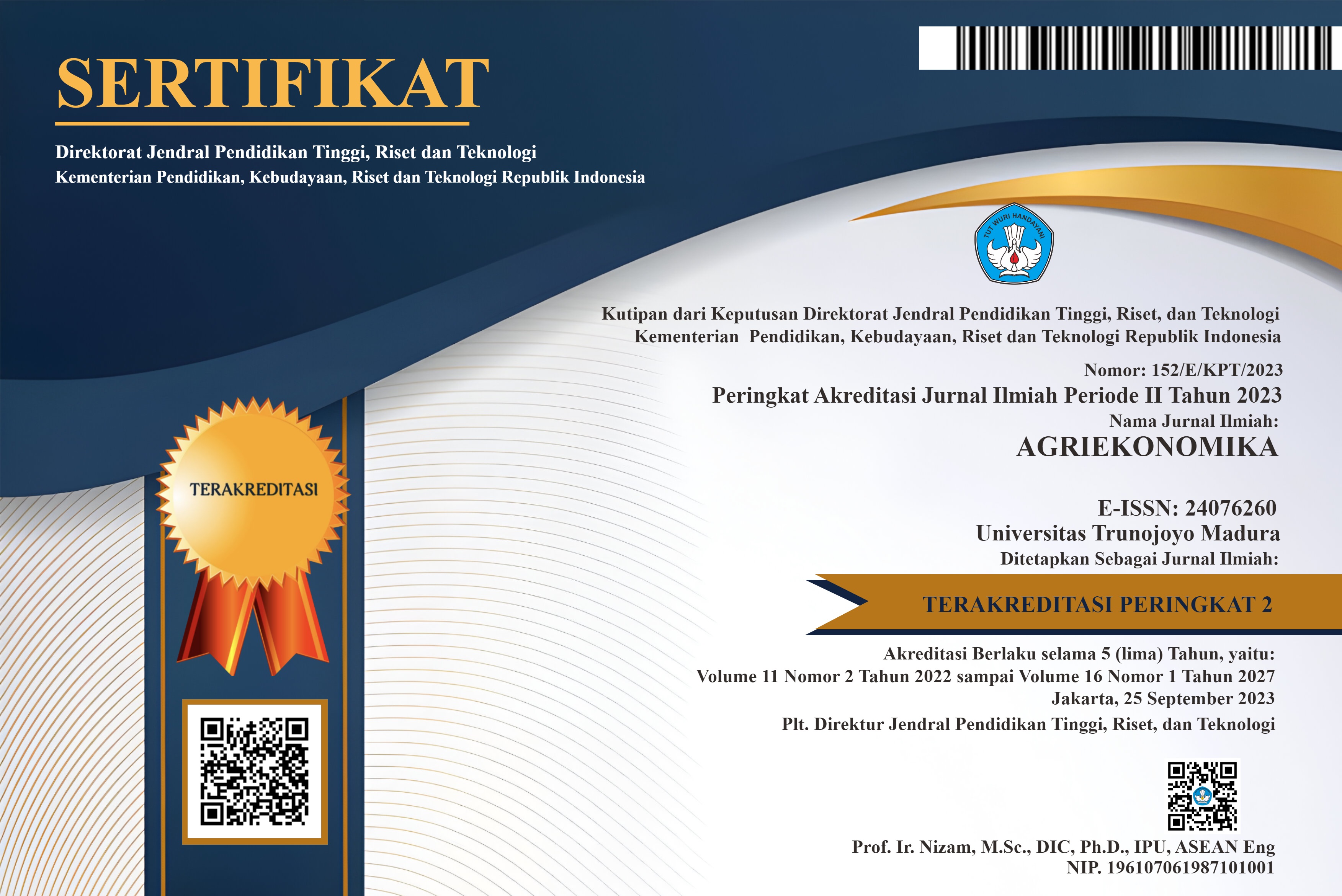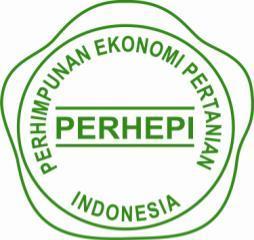Electronic Word of Mouth Pemasaran Madu Era Covid-19 di Wilayah Malang
Abstract
Keywords
Full Text:
PDFReferences
Agustina, L., Fayardi, A. O., & Irwansyah, I. (2018). Online Review: Indikator Penilaian Kredibilitas Online dalam Platform E-commerce. Jurnal ILMU KOMUNIKASI, 15(2), 141. https://doi.org/10.24002/jik.v15i2.1320.
Bagaskara. (2017). Menggunakan google review untuk membuat bisnis anda menonjol di internet. https://www.kompasiana.com/igodigital
Bataineh, A. Q. (2015). The Impact of Perceived e-WOM on Purchase Intention: The Mediating Role of Corporate Image. International Journal of Marketing Studies, 7(1), 126–137. https://doi.org/10.5539/ijms.v7n1p126
Chang, H. H., & Wu, L. H. (2014). An examination of negative e-WOM adoption: Brand commitment as a moderator. Decision Support Systems, 59(1), 206–218. https://doi.org/10.1016/j.dss.2013.11.008
Diaz, M. R., & R, T. F. E. R. (2018). Determining the reliability and validity of online reputation databases for lodging: Booking. com, TripAdvisor, and HolidayCheck. Journal of Vacation Marketing, 24(3), 261–274. https://journals.sagepub.com/doi/abs/10.1177/1356766717706103
Duarte, P., Costa e Silva, S., & Ferreira, M. B. (2018). How convenient is it? Delivering online shopping convenience to enhance customer satisfaction and encourage e-WOM. Journal of Retailing and Consumer Services, 44(June), 161–169. https://doi.org/10.1016/j.jretconser.2018.06.007
Eteraf-Oskouei, T., & Najafi, M. (2013). Traditional and modern uses of natural honey in human diseases: A review. Iranian Journal of Basic Medical Sciences, 16(6), 731–742. https://doi.org/10.22038/ijbms.2013.988
Gupta, P., & Harris, J. (2010). How e-WOM recommendations influence product consideration and quality of choice: A motivation to process information perspective. Journal of Business Research, 63(9–10), 1041–1049. https://doi.org/10.1016/j.jbusres.2009.01.015
Harahap, D. A. (2018). Perilaku Belanja Online Di Indonesia: Studi Kasus. JRMSI - Jurnal Riset Manajemen Sains Indonesia, 9(2), 193–213. https://doi.org/10.21009/jrmsi.009.2.02
Huda, L. (2020). Kenaikan Penjualan E-commerce 25 Persen selama Pandemi. https://bisnis.tempo.co/read/1404513/idea-kenaikan-penjualan-e-commerce-25-persen-selama-pandemi
Jayuli, M., Junus, M., & Nursita, W. (2018). Pengaruh Ketingian Terhadap Diameter Polen Lebah Madu (Apis Cerana) Di Kabupaten Malang. TERNAK TROPIKA Journal of Tropical Animal Production, 19(1), 9–21. https://doi.org/10.21776/ub.jtapro.2018.019.01.2
Kamilah, M. F. (2019). Analisis Edukasi Penggunaan Madu Sebagai Obat Komplementer pada Pharyngitis. https://doi.org/10.31227/osf.io/7mj92
Kumalasari, R., Gutama, W., & Pratiwi, D. (2018). Analisis Pengaruh Electronic Word of Mouth (eWOM) Terhadap Keputusan Berkunjung ke Agrowisata Café Sawah Pujon Kidul. Habitat, 29(2), 65–75. https://doi.org/10.21776/ub.habitat.2018.029.2.8
Lee, K. T., & Koo, D. M. (2012). Effects of attribute and valence of e-WOM on message adoption: Moderating roles of subjective knowledge and regulatory focus. Computers in Human Behavior, 28(5), 1974–1984. https://doi.org/10.1016/j.chb.2012.05.018
López, M., & Sicilia, M. (2014). Determinants of E-WOM influence: The role of consumers’ internet experience. Journal of Theoretical and Applied Electronic Commerce Research, 9(1), 28–43. https://doi.org/10.4067/S0718-18762014000100004
Mungkasa, O. (2020). Bekerja dari Rumah (Working From Home/WFH): Menuju Tatanan Baru Era Pandemi COVID 19. Jurnal Perencanaan Pembangunan: The Indonesian Journal of Development Planning, 4(2), 126–150. https://doi.org/10.36574/jpp.v4i2.119
Nanda, M. S., Mittal, S. P., & Gupta, V. (2017). Role of honey as adjuvant therapy in patients with sore throat. National Journal of Physiology, Pharmacy and Pharmacology, 7(4), 412–415. https://doi.org/10.5455/njppp.2017.7.1233125122016
Purbohastuti, A. wahyuni, & Hidayah, A. A. (2020). Meningkatkan Minat Beli Produk Shopee Melalui Celebrity Endorser. Jurnal Bisnis Terapan, 4(1), 37–46. https://doi.org/10.24123/jbt.v4i1.2480
Setiawan, P. Y., Troena, E. A., & Noermijati Armanu. (2014). The effect of e-WOM on destination image, satisfaction and loyalty. International Journal of Business and Management Invention, 3(1), 22–29.
Tim Kerja Kementerian Dalam Negeri. (2020). Pedoman Umum Menghadapi Pandemi Covid-19 Bagi Pemerintah Daerah : Pencegahan, Pengendalian, Diagnosis dan Manajemen. Journal of Chemical Information and Modeling, 53(9), 1689–1699. https://doi.org/10.1017/CBO9781107415324.004
DOI: https://doi.org/10.21107/agriekonomika.v10i1.9740
Refbacks
- There are currently no refbacks.







